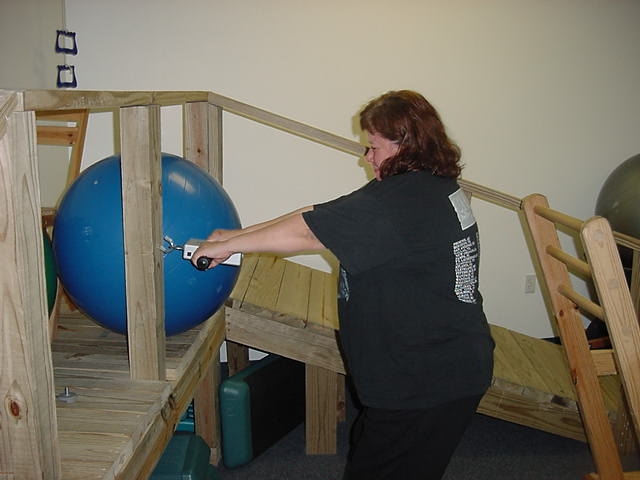Functional Capacity Evaluation
FCE is the single most reliable measure to determine if a successful return-to-work is possible. The report documents an individual's residual physical abilities, level of effort exerted during testing, reliability of reports of pain and limitation, and it is an overall gauge of feasibility for employment. It is inherently a thorough and accurate evaluation process, which plays a role in the workers' compensation process.
Functional Capacity Evaluation (FCE)
Functional Capacity Evaluation (FCE) is one of the services provided by the POWER CENTER TEAM.

Our Functional Capacity Evaluation's (FCE) are used by physicians, case managers, and employers to transition injured workers from disability to function and employment.
Functional Capacity Evaluation provides an important bridge from the impairment phase of medical evaluation to the disability recovery phase. FCE provides a means for a shift from the disability to vocational feasibility.
In our vocational rehabilitation setting the results of Functional Capacity Evaluation are typically used to develop return-to-work plan for a State Agency, Department of Assistive & Rehabilitation Services (DARS) and for Workers' Compensation clients.
We are contracted with DARS, and the evaluations are used as the basis of eligibility for service, an offer of alternative employment, or as the foundation for a feasibility development plan (work-focused rehabilitation). The results are a sound framework for developing a Temporary Alternative Duty plans.

The Functional Capacity Evaluation is a formal evaluation designed to determine physical and functional capabilities and work tolerances using the J-Tech computerized testing system. This evaluation is a requirement for entrance into either a Work Conditioning or Hardening program, and determining return to work status and/or physical limitations.
Through FCE's, we are able to assess the:
- Level of Participation
- Cooperation and Effort
- Safe Maximum Performance Levels
- Safe Maximum Repetitive Performance Levels
- Range of Motion and Strength Deficits
- Neurological Deficits
- Work Tolerance for Job Specific Tasks
The evaluation includes:
- Computerized Muscle Testing (CMT)
- Isometric Measurements
- Isokinetic Measurements
- Static NIOSH Lifts
- Computerized ROM Testing, Using
- Dual Inclinometers and Digital Goniometers
Additional Features:
- Maps Provided for Patients
- Appointment Scheduling is Available
- Notification of Appointment Sent Via E-Mail / Mail
- Follow up on Consumers

